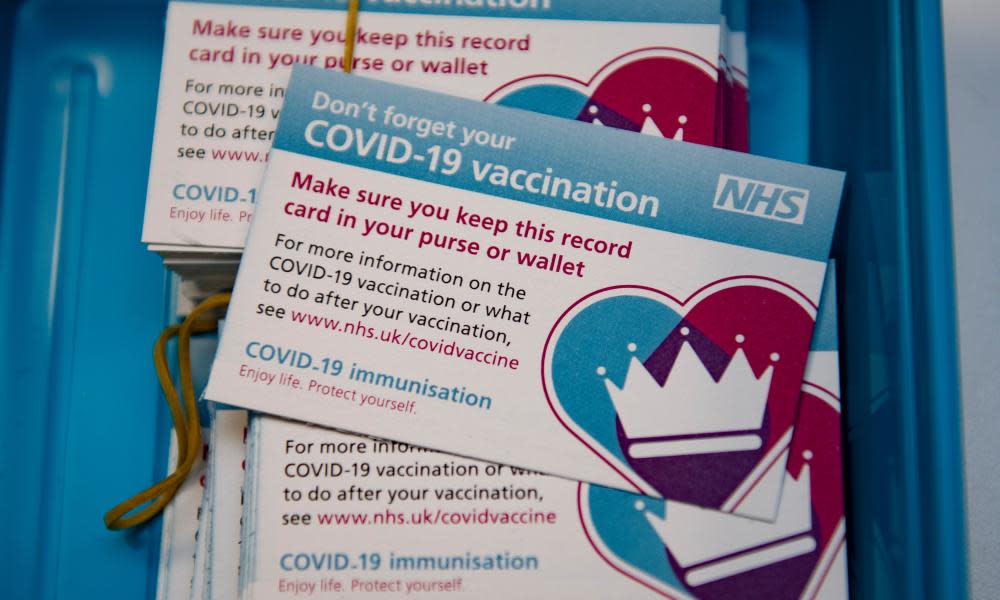The Guardian view on vaccine passports: a tool to handle with care

Boris Johnson appears, at last, to have learned the folly of overconfidence in fighting the pandemic. He used to make rash promises with grandiose optimism. Now his plans are laden with caveats. The adjustment is welcome, albeit too late for those whose lives were lost when denial and bluster spoke louder than caution and evidence to dictate government policy. The coming months will test the prime minister’s newly judicious method. Many in his party are impatient for lockdown to be eased faster. Public tolerance of onerous restrictions has a limit.
The question then arises of whether proof of vaccination or a recent negative Covid test might accelerate the reopening of services and advance a revival of social and economic activity. Downing Street was against the idea when it was first raised last year, but this week Mr Johnson was more circumspect. To issue some kind of certificate raised “deep and complex” issues, the prime minister said. But he did not rule it out. Instead it is to be the subject of a Cabinet Office review.
The complexities are practical and ethical. It is not clear what legal basis would apply if public or private services were withheld to someone unable (or even just unwilling) to provide proof of vaccination. That could amount to unlawful discrimination. There are issues around the power of employers to require certification of the workforce; potential abuse of that power; and fraud. An official register of immunisation raises questions of privacy and data security.
Plus, there is the hazard of premature relaxation of good hygiene as holders of a vaccination certificate wrongly imagine themselves untouchable and unbound by the obligation to protect others. No jab is 100% effective; protection against serious disease does not necessarily stop transmission of the virus, and resistant strains might evolve. Issuing individuals with a licence to mingle would be counterproductive if it means the collective guard goes down.
Against those risks must be set the prize of restored social and economic activity, with benefits in terms of jobs saved and mental wellbeing revived. The government is not aiming to eradicate Covid-19 any time soon, and it is unsustainable to keep workplaces closed indefinitely. So we will be living with the virus, calibrating the risk, adjusting behaviour and finding innovative ways to meet various public and private sector goals. Vaccination and testing are the two most important tools to that end, so it seems inevitable that systems will evolve by which people can show that they have been vaccinated or tested negative. Requirements along those lines have already been integrated into international border regimes.
There are important differences between issuance of vaccine “passports” for foreign travel, a familiar enough concept, and some kind of domestic licence to shop or work, which would be unprecedented. It is hardly surprising that the latter notion is resisted by anti-lockdown campaigners even before it has been formally mooted. But the complexity of a proposal is not a reason to reject it, if the objective is worthwhile. Terms of debate over certification must not be set by ideological factions before the government review has considered the idea. The needless culture war frenzy over face coverings provides a cautionary tale in how not to conduct reasonable argument on these issues.
With every aspect of the pandemic response there is a trade-off between individual freedom and state control. It should, by now, be possible to consider quite drastic measures, such as vaccine certificates, mindful of civil liberties but without overwrought rhetoric about a slide to despotism. A shoddily implemented system would be counterproductive, even dangerous. A good one, with the right legal safeguards, could be immensely valuable. Design and competent administration, not rigid dogma, are the key metrics by which any policy that emerges in this area should be tested.

 Yahoo News
Yahoo News 
